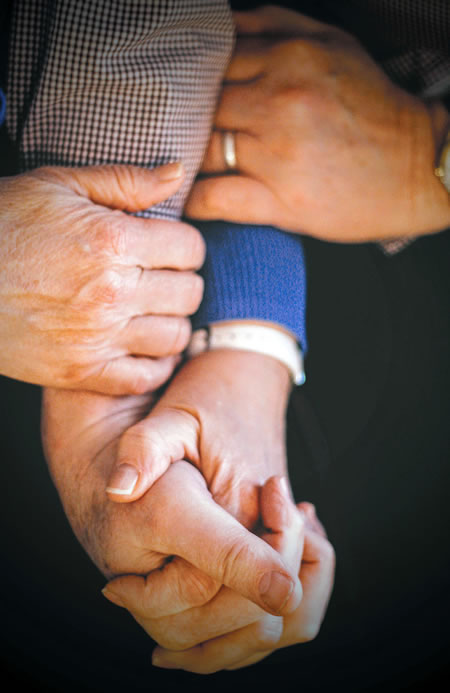
I’ve been working as a shelter supervisor for many years. I have met a lot of caregivers who came to our center for assistance and shelter. I have the chance to get to know them through our one-on-one meetings.
Caregiver workers are vulnerable to abuse because here in Taiwan they are not yet part of the international labor standard law. They don’t have regular days to rest, and they work for 24 hours taking care of the old people and receive low wages.
 We have time for personal sharing during our monthly meetings. From their personal sharing, I am touched by their stories of how unselfishly they care for old people who have dementia, Alzheimer’s, or other illnesses. They absorb all the negative feelings, including pain and anger, yet sometimes lacking the language becomes an advantage for them because it lessens the stress in that they cannot understand those hurtful words.
We have time for personal sharing during our monthly meetings. From their personal sharing, I am touched by their stories of how unselfishly they care for old people who have dementia, Alzheimer’s, or other illnesses. They absorb all the negative feelings, including pain and anger, yet sometimes lacking the language becomes an advantage for them because it lessens the stress in that they cannot understand those hurtful words.
There is also the emotional challenge of being separated from their own families. It is a constant struggle for them. They long to be with their families and yet feel guilty for not being there to care for them while they take care of others. Moreover, the distance can lead to conflicts and misunderstandings, making the emotional burden they carry even heavier. They sometimes feel tired and need time to recharge.
Once, I asked a group of caregivers about their dreams and aspirations. Many expressed a desire to improve the lives of their families and loved ones. However, they also wished for basic things like having a regular day off, a better salary, and respectful employers. These might seem like simple dreams, but achieving them requires sacrifices. They are willing to make these sacrifices for the chance to provide something better for their loved ones.
Caregivers really work hard to help others, but sometimes we forget that they too need help. It is innate in them to take care of other people so it is important to understand that they should also get the same care and kindness in return. Taking care of our own self is not just good, but it is also important so that we can help others better. We want the people here in Taiwan to respect their rights. Having a day off is not a luxury; it is something they need.
The Hope Worker Center is organizing and facilitating activities for the caregivers. It has been challenging because they do not have regular days off or their available time does not coincide with others. However, we continue to conduct our monthly gatherings, online rosary sessions every Friday, and offering Mandarin classes. These efforts are our way of honoring their importance and providing an opportunity to educate them about their rights.
This year, we will come together to support them in the Big Rally to advocate for caregivers’ rights and welfare. Some caregivers may be unable to attend because they have to work. It is our duty to stand alongside them, so that their contributions are recognized, and their voices are heard to safeguard their health and well-being as care givers.
Columban lay missionary Joan Yap lives and works in Taiwan.